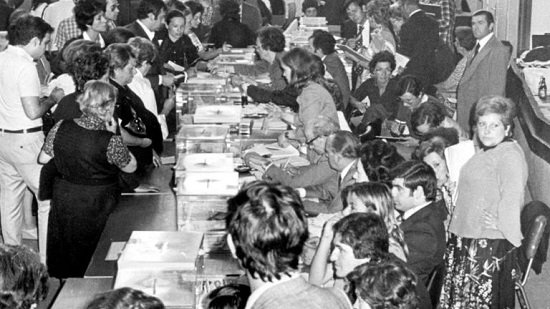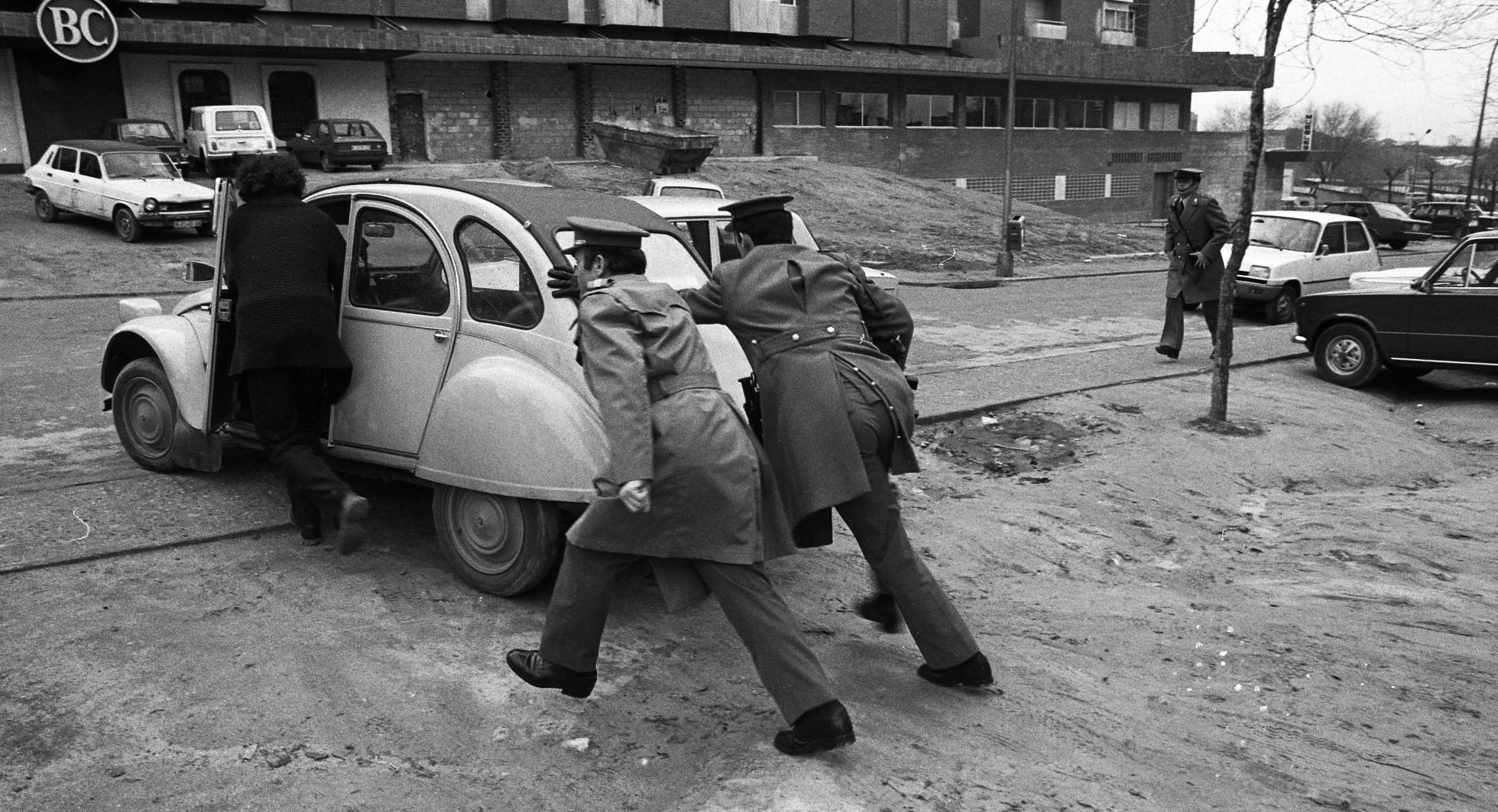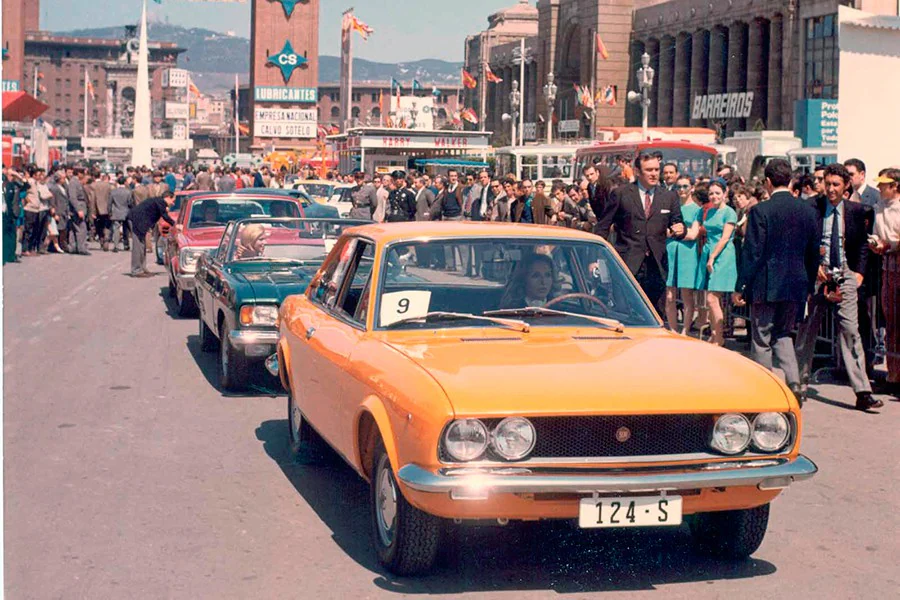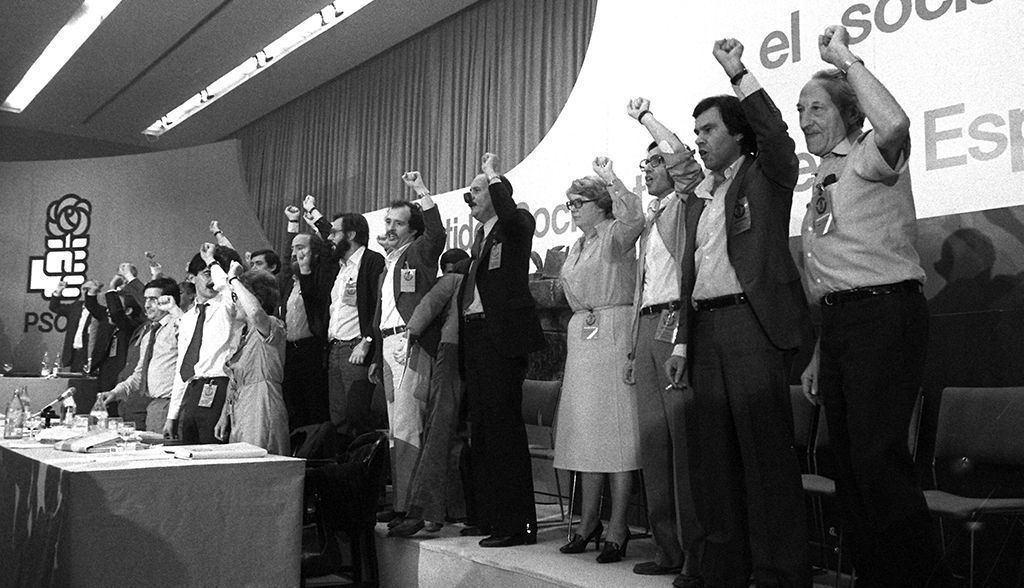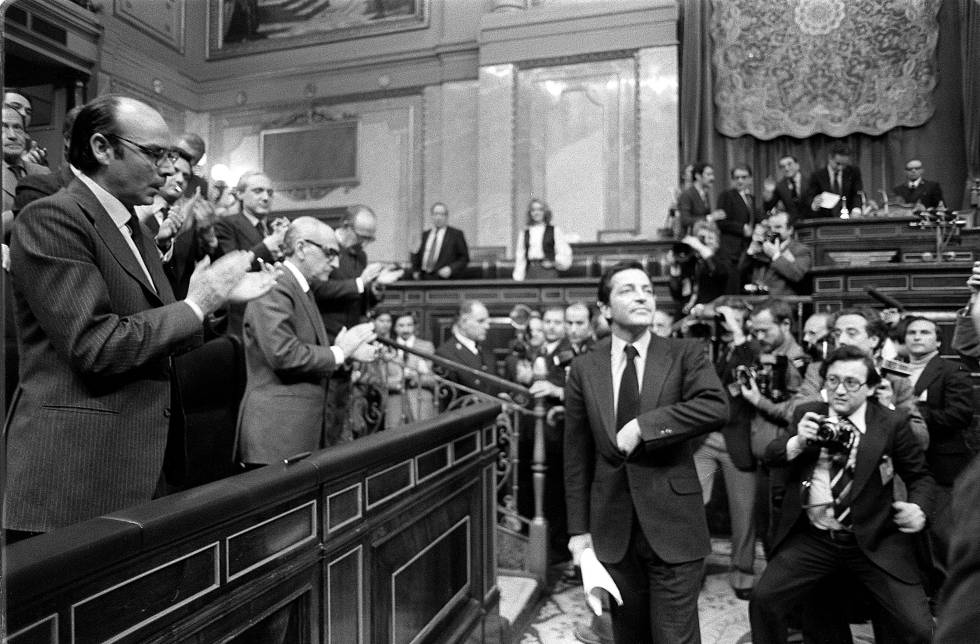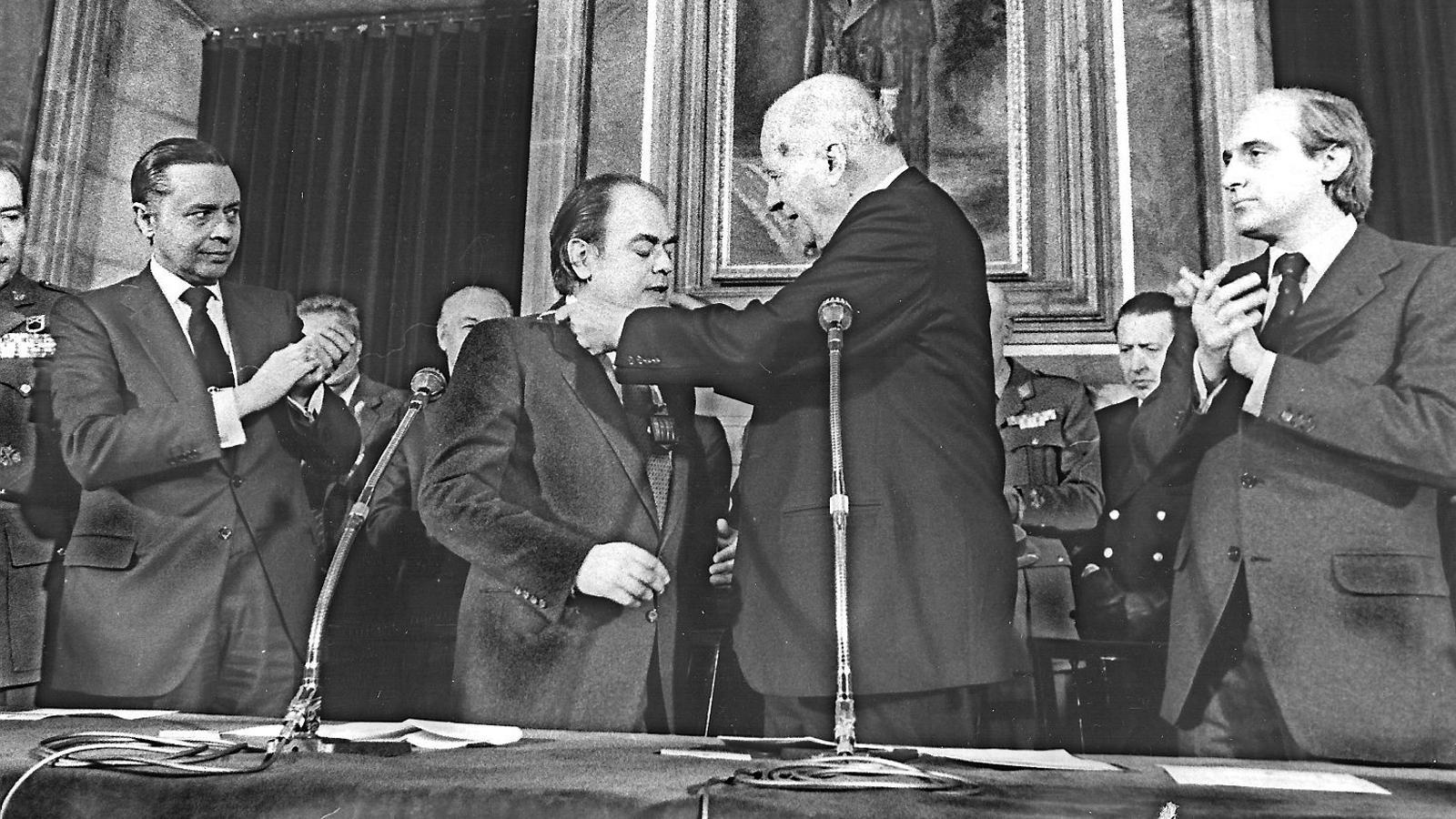1. Reunification
1. Reunification
The political and economical stagnation that the Francoist Spain was enduring since the 1960s, specially from 1965 onwards, led to an increase of the "Free World" democracies upon the totalitarian regime. In 1972, Robert Nixon send his Secretary of State, William P. Rodgers, to Barcelona to meet the President of the Spanish Republic, José Maldonado, with a clear message: to tear down the "Iron Curtain" that divided the two Spains. Maldonado, of course, pointed out that Franco refused point blank to have any diplomatic deals with them, and the stalemate ensued.
This would change in April 1974, when Franco died. The hopes for a change in the country resufarced until the were dashed with the rigged elections of October of that year, when Arias Navarro was confirmed as the prime minister while a "regency council" would study who would succeed Franco as the new head of state. This farce had an inmediate effect: the number of Spaniards leaving from the Francoist Spain to France went from some dozens at month to several hundreds and then thousands.
The protests and strikes against the regime reached a climax in March 1975, when 500,000 Spaniards demonstrated in Madrid and 200,000 in Burgos, with smaller demonstrations took place in Badajoz, Bilbao, La Coruña, Oviedo, Pamplona and Sevilla. In spite of the situation, Arias Navarro clinged to his power until November 20, 1975, when the turmoil and the worsening econominal situation forced his resignation. Four days later, a few border posts between the two Spains were opened, resulting in thousands of citizens of the Francoist Spain crossing freely into the Spanish Republic for the first time since the end of the Spanish Civil War in 1940.
The elections of March 1976 opened the way for a reformist goverment under Adolfo Suárez and his Unión de Centro Democrático (UCD - Union of the Democratic Centre), one of the few political parties that were created under the clauses of the Ley de la Reforma Política (Political Reform Bill) aproved by the Spanish Cortes (Parliament) in January 1976. This bill had excluded the Partido Comunista de España (PCE - Communist Party of Spain) but not the Partido Socialista Obrero Español (PSOE- Spanish Socialist Worker's Party) led by Felipe González, which had become the second main party of the country, to the discomfort of many diehard Francoist.
One of the first actions of the new prime minister was to open negotiations with the Republic and, in June 1976, the Cortes voted in favour of a reunification with his former enemies. In Barcelona, Maldonado called for a referendum, but it backfired: the "yes" option won in most of the country - Andalucia (77% of "yes" votes in the Republican section of that region), Aragon (72%), the Ballearic Islands (75%), Castilla la Mancha (71%), Murcia (75%) and Valencia (69%)- Catalonia voted "no" by a narrow margin (52% vs 48%).
This opened the carn of worns within the Republic and, as the government pressed for the reunification, the Generalitat, the Catalan local government, using the powers given by the Spanish Constitution of 1968, called for a referendum to decide wether Catalonia had to become independent or to follow the rest of the country in the reunification process. On September 2, 1976, Catalonia voted for independence (69% yes, 31% no).
Thus, when the reunification process brought together the two halves of Spain in January 1977, Catalonia walked away from the new nation.


